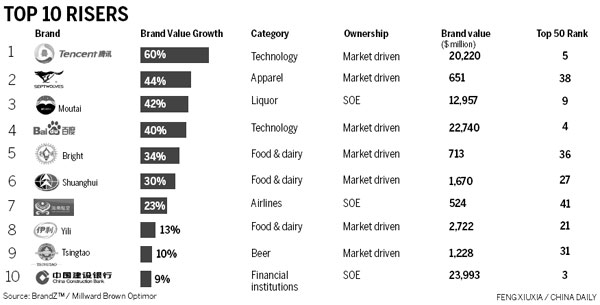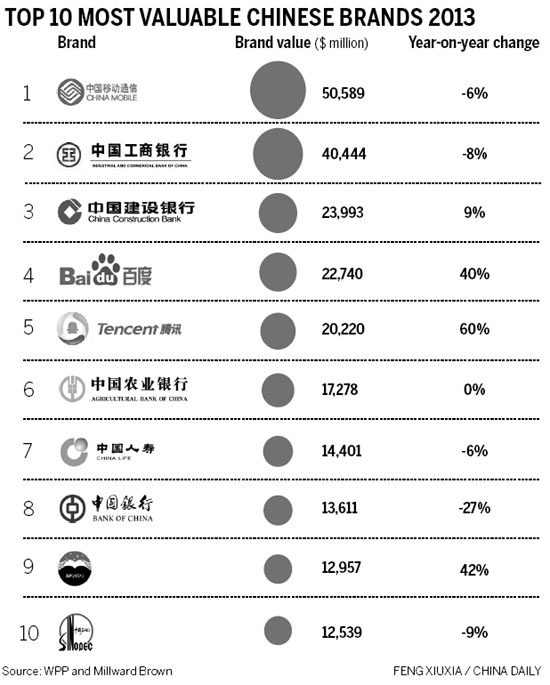Gaining trust on a global scale
Updated: 2012-12-28 07:40
By Liu Jie (China Daily)
|
|||||||||||
To attract global attention, a Haier refrigerator was carried on China's spacecraft Shenzhou 9 during its 13-day mission in June.
In the US, Haier renewed its sponsorship of the Haier Shooting Stars basketball competition, an annual event where players from the National Basketball Association and the WNBA compete in a basketball contest.
"Ad and marketing activities associated with sports, innovation and big national events have helped build a sound and healthy brand image for Haier," said Wang.
Her company and WPP, the international communications group, jointly released a list of what they consider the top 50 most valuable Chinese brands in December, and Haier was listed at 30th.
The Ipsos/Global Entrepreneur survey had Haier among the top five recognized Chinese consumer brands in the US, Japan and South Korea.
But a lot of work still needs to be done to raise the international image of Chinese brands, say experts.
The Ipsos survey said the typical opinion about Chinese brands abroad is that their quality and technical content is still not high.
A recent Millward Brown study also found that although international consumers remain mostly uninformed about Chinese brands, they are at least willing to try them out.
Wang says three main challenges still face Chinese brands: "Achieving consistent quality, creating an emotional connection, and establishing trust" in a global economy where a product's provenance is often less important than its quality, design and value.
The issue of trust in Chinese brands has been stretched to the limit in recent months amid fears that some of China's high-end baijiu had been contaminated.
The country's largest producer by market capitalization, Kweichow Moutai, issued a statement earlier this month saying the level of potentially toxic plasticizers - which can be used to soften plastic food and drinks containers - found in its products fell within China's permitted limit, after a local online report suggested tests in Hong Kong on bottles of Moutai baijiu found high levels of the chemical.
Camus, for its part, said it sells Small Batch Blend Moutai, which is specially designed and produced for the overseas market, and that its quality can be guaranteed.
As the case continues to be investigated, the link with Camus is likely to have had a beneficial influence on the public relations effort surrounding the whole issue. Experts have suggested that Chinese companies should well be seen to be working with well-known brand names in future, preferably by way of mergers and acquisitions, when taking their brands overseas.
Jane Liu, a researcher at Analytics & Insight MEC China, said brands are intangible assets that can be slow and costly to build, and that China, as a latecomer to the global marketplace, is at a disadvantage.
"A quick way to catch up is by M&As, an option that Chinese companies are now pursuing," she said.
Recent examples include Lenovo, which acquired a majority stake in Medion AG, a German home appliance, in 2011, and Haier, which acquired small and large appliance biomasses from Japan's Sanyo.
In cases such as these, the strategy for rebranding the newly merged or acquired companies is crucial because one of the greatest problems that M&As face is cultural integration.
Contact the writer at liujie@chinadaily.com.cn


Today's Top News
President Xi confident in recovery from quake
H7N9 update: 104 cases, 21 deaths
Telecom workers restore links
Coal mine blast kills 18 in Jilin
Intl scholarship puts China on the map
More bird flu patients discharged
Gold loses sheen, but still a safe bet
US 'turns blind eye to human rights'
Hot Topics
Lunar probe , China growth forecasts, Emission rules get tougher, China seen through 'colored lens', International board,
Editor's Picks

|

|

|

|

|

|





